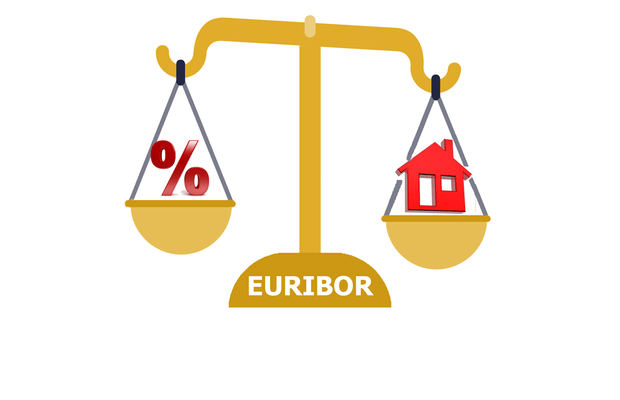Six-Month Home Loan Interest Rate Rises for the First Time in Four Years
30 March 2018
Families with housing loans indexed to the six-month Euribor will see their monthly instalment revised upwards in April for the first time since 2014. However, the increase will be minimal.

The difference will be slight, but many Portuguese families will have to start paying a bit more every month. For the first time in four years, residential mortgages indexed to the six-month Euribor will see their monthly instalment rise. The increase will affect loans with interest rates revised in April. The good news is that the increase is quite small.
A family that has a 6-month Euribor floating rate loan in the amount of 100,000 euros, at 30 years, with a spread of 1%, will see their monthly payment rise to 309.34 euros, in April. This represents an increase of 0.03%, or the equivalent of nine cents, compared to the last revision in September.
This is a slight but symbolic worsening of terms since it is the first time since the revision in March 2014 that families with this type of loan will pay higher monthly payments. In fact, there had been no increase in any of the loans tied to the six-month Euribor since May 2014.
The six-month Euribor is the second group of loans to feel an increase in mortgage instalments. Six months ago, the three-month Euribor also rose.
In the April review, however, there is good news for families whose mortgages are tied to the three-month Euribor. Their monthly instalments will remain unchanged. Once again using the example of the €100,000 loan, the value of the mortgage payment will fix itself for another three months at 306.8 euros per month.
Portuguese families with loans linked to the 12-month Euribor are even more fortunate, as they will continue to benefit from the downward trend in interest rates over the last year. In this case, the value of their payments will fall by 1%, or 3.31 euros, to 312.94 euros.
Interest rate increase
However, recent falls in the 12-month Euribor have become progressively smaller, along with the fall in associated monthly instalments. Euribor levels at all maturities are increasingly stabilising, at a time when benchmark interest rates in the Eurozone are widely expected to begin to climb from their historic lows.
The Bundesbank recently raised the possibility of a rise in interest rates in the Eurozone in 2019. “The markets forecast a first increase in interest rates by about mid-2019, which is certainly not unrealistic,” Jens Weidmann, head of the German central bank and a member of the ECB’s Governing Council, stated last Monday in a speech in Vienna.
Original Story: Economia Online – Catarina Melo
Translation: Richard Turner

 Spain
Spain  Italy
Italy  Greece
Greece 


